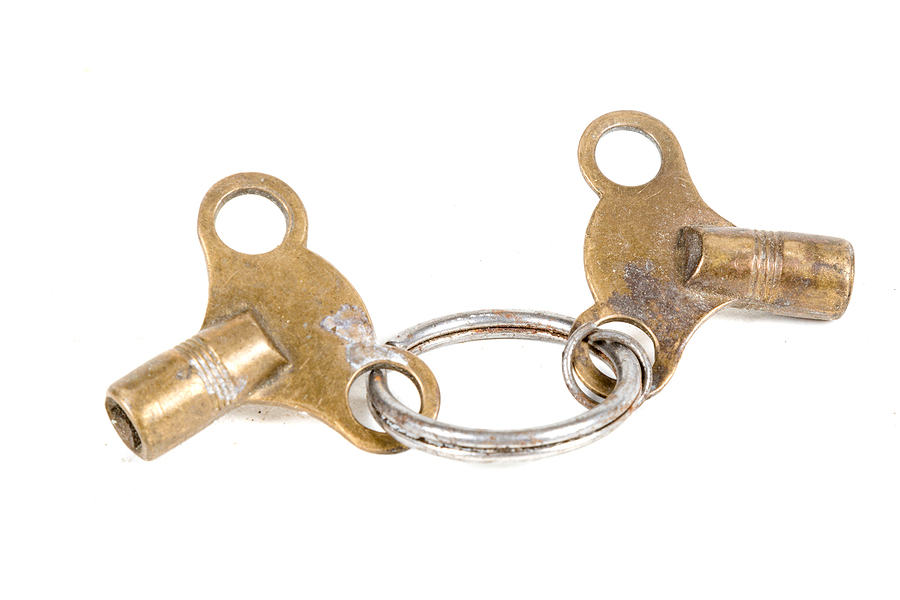Radiators not warming up properly? Sort it now…
With over 84% of the United Kingdom using hot water central heating it’s likely that you’ll need to bleed your radiators at least once a year.
“Bleed” you say? What’s that? We’ll take you through what this is, why you need to do it and signs you may already have a problem. Thankfully, it’s something quick and easy you can do to have your heating running smoothly again.
Why do I need to bleed my radiators?
Over time air bubbles get trapped in your central heating system preventing water from circulating correctly. Air in radiators stops them from warming up as quickly as they should, reducing the efficiency of your household heating system and costing you more money as a result.
Signs Your Radiator May Need Bleeding
There are some very clear indicators as to whether your radiator may need bleeding. The most obvious sign is from your radiator not getting hot when the central heating is active. While widespread radiator failure could be an indication of a more serious boiler issue. Other common signs that your radiator needs bleeding include:
The top of the radiator is not heating up. Cold spots on radiators are a recognisable sign of air building up. This is due to the air bubbles rising in the central heating and gathering at the top of the unit, causing it to be significantly cooler than the lower half.
Creaking or noisy radiators are another sign that the system may need bleeding. This is generally caused by an irregularity in air pressure that causes vibration and the subsequent creaking sounds.
However, before you start bleeding radiators it is important to check for more serious problems. Check that there is no water underneath the radiator or that there is no rust around the system.
Having your heating system checked on a regular basis when you have your annual boiler service is one way to avoid the worry around this. A boiler engineer knows exactly what to look for and resolve those issues.
How do I bleed my radiator?
Luckily, bleeding your radiators is a relatively straightforward process, and the best part is you don’t have to be an expert to do it!
The only specialist kit that is required is a radiator key, a small and cheap appliance that is available at most DIY stores. To bleed your radiator correctly, you just need to follow a few simple steps:
Turn off your central heating. Doing this will prevent you from burning yourself and stop the floor from being soaked with excess water. Find the release value. It’s generally located on the top and on the side of the radiator and is identifiable by the groove that will match that of the radiator key.
Twist the key anti-clockwise, releasing air in the radiator. It is important that you do this with a cloth or bowl ready to catch the dripping water. As the valve is turned, there will be a hissing sound as the pressure is reduced, indicating that the process is working.
Once the hissing stops and water begins to trickle out of the valve, tighten the screw clockwise, making sure not to over-tighten and cause damage.
Check the pressure gauge on your boiler as the process of bleeding radiators can cause pressure to drop. If this is the case, you can ‘top up’ the pressure via the filling loop located on your boiler. This process may need to be performed once or twice a year, depending on the age of your system; however, if this is a more regular requirement for your boiler, it could be a symptom of an underlying problem.
What if the problem persists?
If your radiators continue to show cold spots after bleeding them, there may be sludge build-up in your heating system that prevents water from circulating properly. However, you won’t necessarily need to replace the radiators. Instead, a powerflush could prove a simple yet quick solution.
Choose Hometree
Having that extra peace of mind over the winter months can be a godsend, just take a look at Hometree’s comprehensive boiler, heating and home care plans. Hometree offer plans for both homeowners and landlords (including all gas safety certification), with an annual boiler service and a whole host of other great features including:
A “no price hike promise”, no claims, no price hikes
- 24-hour emergency helpline
- 90% of emergency call-outs within 24 hours
- Landlord Gas Safety Record (for landlords only)
 Hometree is also rated “Excellent” on Trustpilot!
Hometree is also rated “Excellent” on Trustpilot!

ADVERTORIAL


















